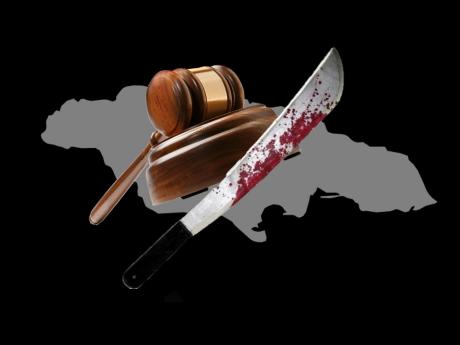Looking glass chronicles - An Editorial flashback
Murders of the homeless – our collective shame
This past week The Gleaner’s Editorials took a look at the death of Ken Allen, the growing desperation of a waning entertainment industry, and the Finance Minister’s optimism on growth, but its take on everybody’s responsibility for crimes against the poor may just warrant another look.
Murders of the homeless – our collective shame
It is encouraging news that the police have a suspect in custody for last week’s hacking to death of four homeless men in Kingston and the wounding of two others. We are, however, concerned that identifying the detainee merely as a “deportee” may provide a subliminal salve to the horror of the crime, as well as an escape hatch by the rest of us.
But there is no eschewing of culpability. Those deaths are our collective shame. We are all responsible for creating a society where people kill with impunity and, as the local government minister, Desmond McKenzie, observed, the most vulnerable among us are usually “treated as expendable”.
If, indeed, the detained person is guilty of the murders, and was a lone wolf, we hope that he will be a swift beneficiary of justice, including interventions for any health issues, psychological or otherwise, that may have been triggers for the crime. The victims deserve it. At the same time, we urge to give real effect to the clichéd promise of every horrific event – and echoed by Mr McKenzie last Tuesday – to “spare no effort in investigating the heinous and barbaric murders”. They deserve this, too.
There must, in other words, be no rush to judgement. The investigation must have the necessary rigour to unearth all the facts and circumstances of this crime. The observation is apt, in the context of the deportee tag attached to the suspect. In the popular narrative, deportees are mainly violent felons and jailbirds who are sent back to Jamaica, usually from the United States, to expand the ranks of domestic criminals to wreak havoc upon a society already burdened by crime. Sometimes, though, deportees are victims – sent to a country where they have no ties, and into situations with which they are unfamiliar. They also become victims of the new environment.
Even if the assertions about the effects of deportees were entirely true, last week’s event insists upon a deeper, and harder, look at what it is about our society that fashioned the victims and perpetrator(s) of that horrific crime. It also opens an opportunity for a conversation towards reversing these situations.
ACCEPTANCE OF HUMANITY
That conversation, with the aim of meeting Mr McKenzie’s challenge of building “a far gentler society”, must work towards, if not start with, an acceptance of each other’s humanity. That, unfortunately, too often is not the case in Jamaica. Indeed, it may just be the stage of the investigation, or that the authorities as yet do not know, but it is noticeable that nearly a week after the killings, none of the victims has been identified by name. And the society, it seems, has little curiosity about them as individuals. The possibility is that, like most of the more than 1,300 people murdered in Jamaica each year, they will become mere statistics. We have become, until it reaches us directly, callused by, and callous towards, murder. This is evidenced by the absence of outrage of the murder statistics and, in a way, our acceptance of the facelessness of the victims of last week’s tragedy. We have programmed ourselves to move on from the last atrocity, to await the next.
There is, in the anonymity of last week’s victims, an echo of two decades ago when around 30 homeless people were scraped from the streets of Montego Bay and dumped in the parish of St Elizabeth, to make the city pristine for tourists. Those street people, too, were made largely nameless and faceless. The broad view among Jamaicans is that anyone who lives on the streets is mentally ill. The stigma that surrounds mental illness shreds people of their humanity. Yet, by some estimates, up to 40 per cent of Jamaicans will, at some time in their lives, suffer some form of mental illness. One survey a dozen years ago found that a fifth of the population between 15 and 74 suffered from depression. The bottom line is that mental illness is not far from any of us.
PUSHED TO MARGINS
In any event, it is unlikely that the majority of the 2,000 people who Minister McKenzie estimates sleep rough in Jamaica, including 700 in the capital, are mentally ill. Many have fallen on economic hard times, or have been pushed to the margins by social and other circumstances. This situation is likely to have been worsened by the recession triggered by the COVID-19 pandemic. Indeed, the economy shed over 130,000 jobs in 2020, pushing the unemployment rate above 12 per cent, from just over seven per cent. It is probable that some of these people will find themselves on the streets. The fact, however, is that neither mental illness nor homelessness because of economic privation or other factors equates to a loss of personhood.
Obviously, Jamaica faces difficult and complex problems. Fixing the economy is among the solutions. But there is need, too, for a skill Jamaican leaders have lost in recent decades: the capacity to mobilise people to a common purpose. In this case, an embrace of empathy would be central to the endeavour.

